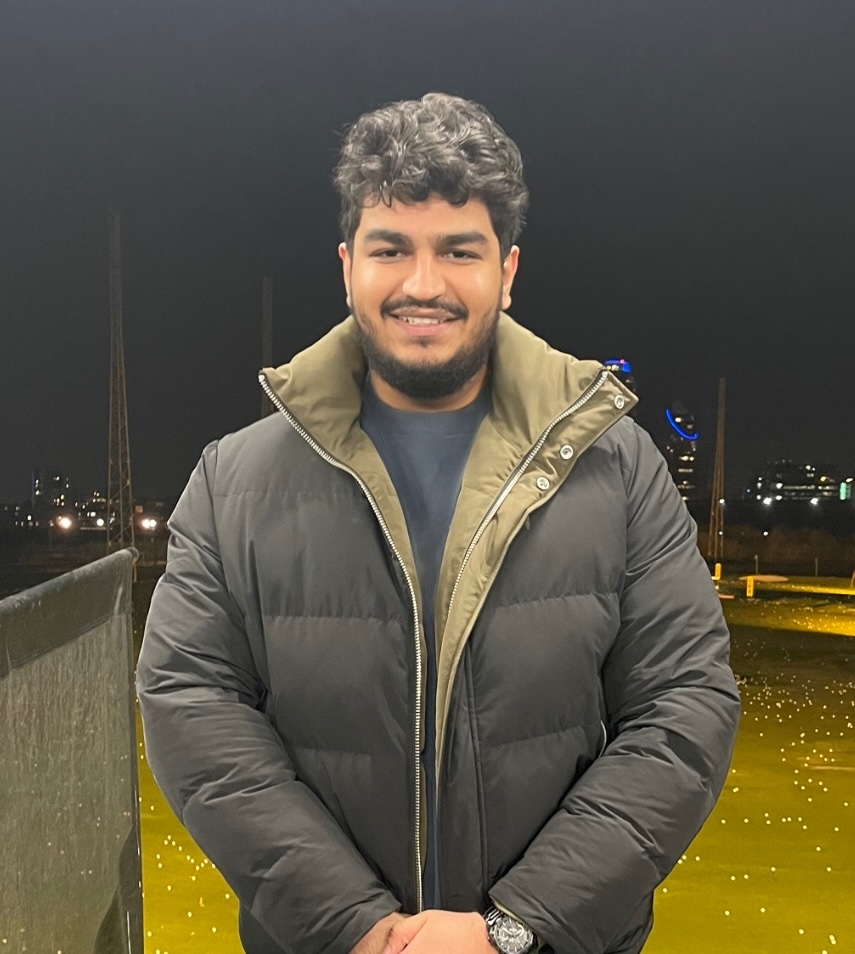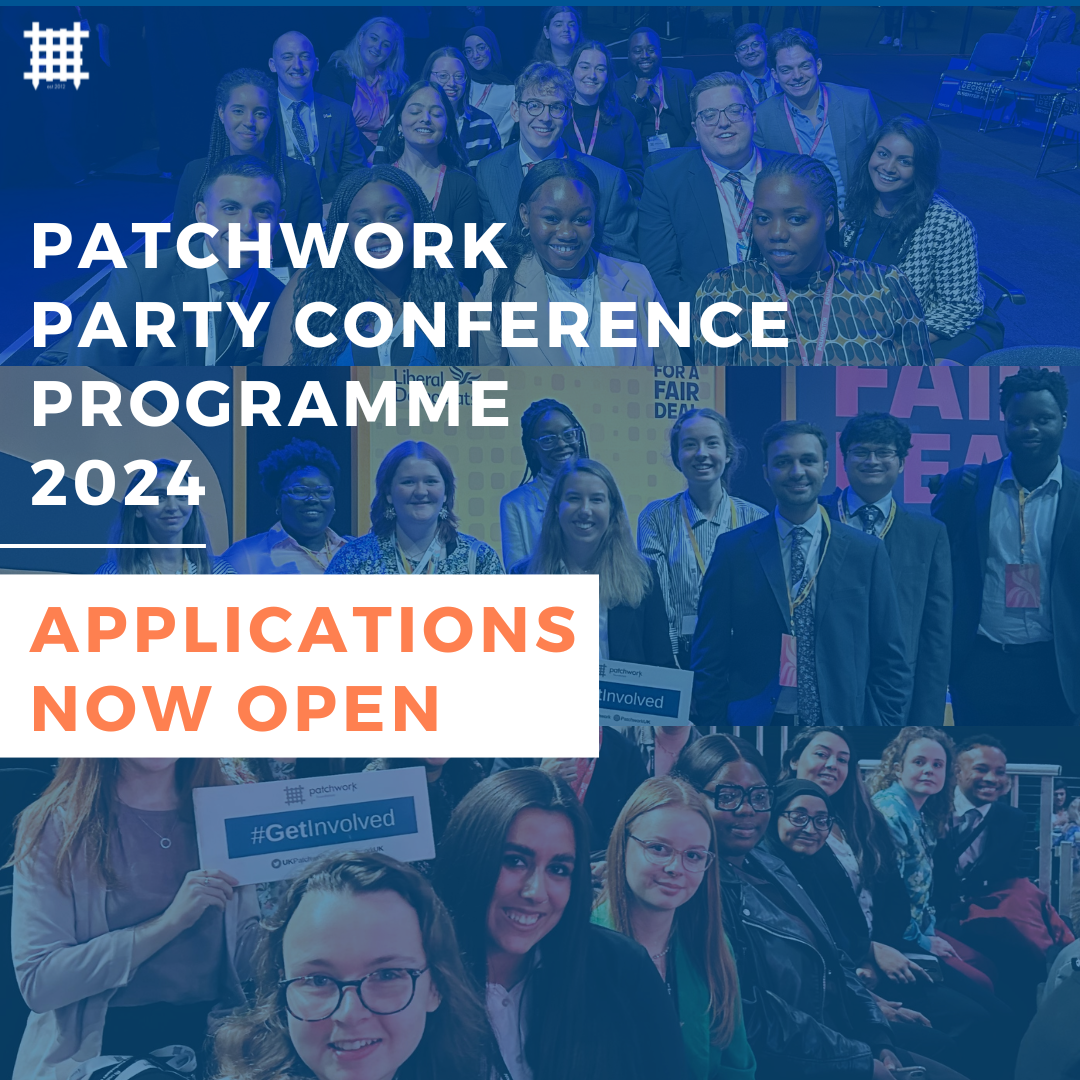“Patchwork doesn’t just leave young people with political knowledge, it also leaves them with a lot of personal power.”
Asia Williams is the Waitt Institute’s Blue Economy Manager. In this role, she supports the Institute’s work helping nations design and implement sustainable Blue Economy strategies to support long-term ocean health, job creation and community wellbeing.
Asia brings extensive experience in project management and the Blue Economy sector. Prior to joining the Waitt Institute, Asia served as a Blue Economy Consultant for the Branson Centre Caribbean, supporting Blue Economy entrepreneurs to access grants, finance, and training opportunities to grow their businesses. As part of this project, she also worked in partnership with the Inter-American Development Bank to assess how to diversify the tourism sector and make it more environmentally sustainable.
What are you up to at the moment?
At the moment, I’m in Jamaica working with the Waitt Institute – I’m their Blue Economy Manager. At the Institute we’re led by the 30-by-30 mission; to protect 30% of the ocean by 2030. I’m working with the Maldives, Micronesia, Bermuda at the moment, with Fiji to come on board – to get them set up so that 30% of their EEZ, which is their exclusive economic zone, is a marine protected area, and also to do some marine spatial planning around the other 70% so that it is sustainably managed.
I’m also a mum! I have a little baby, and it’s a lot of work, but I know people sometimes think ‘your career journey stops here’ and ‘it’s a lot to balance’, but I think getting the right support around you is really important. It’s really lovely as well – I hope my daughter gets inspiration from me as she grows up seeing me working in this space and getting a PhD and everything else that I’m involved in.
Why is it so important we protect our oceans?
The ocean is a really vital natural resource that underpins all human life. The ocean acts as a ‘carbon sink’, so it absorbs Carbon Dioxide. Actually if we didn’t have the oceans the impact of climate change would be even more significant and the earth would be even warmer. We would have already exceeded the 1.5 degrees warming that is the Paris Climate Change Agreement target (at the moment we’ve exceeded about 1 degree).
But as the ocean absorbs the heat caused by climate change and the Carbon emissions we emit, it becomes more acidic, and that acid erodes coral reefs and puts pressure on the biodiversity that lives in that ecosystem. The ocean hosts a wide variety of species that we are currently overfishing and dumping waste into.
It really helps regulate the climate and acts as a carbon sink, as well as provides us with food, recreation, tourism, and other activities, but we are exceeding its capacity at the moment with our activities.
You’ve done so many projects around environmental sustainability – what inspired you to go down that road?
I was born in Trinidad and Tobago. I used to go back often even though I grew up in London, and my dad used to take me snorkelling and he got me certified as a diver as well, so I’ve always had this relationship with the ocean and saw the beauty from a young age, but also saw a lot of the reef die off. Now if I go back to the reef I used to snorkel on when I was a child, it’s mostly dead which is a real shame.
When I was in secondary school in Pimlico, London, I was doing my Geography GCSE, and we were learning about climate change and the impact it was having on the coral reef. I started going ‘we need to solve this, because the reef is this beautiful thing that I’ve loved forever’. That led me to do a Geography degree at university, and then from that I did a Masters in Urban Planning and Sustainability on a scholarship. Afterwards I started working at a consultancy in the Environment Team, and then working with the Environment Agency and the Commonwealth Climate Change Network. Anything that was involved in Climate Change and the Environment I had a passion for, and I always wanted to connect with people who were in the space. The essential thing that moved me was the impact climate change was having on the reefs.
It’s easy to sometimes feel disheartened about the Climate Crisis. Do you feel hopeful in the work you do?
I do. There are parts of the work where you do get disheartened. I used to go to the COP climate negotiations, and when you see the political barriers and the stalling, you do get a bit disheartened.
But then you work in organisations where you’re working with governments that are still prioritising ocean protection, and NGOs and individuals that want to implement projects and are getting financing for them.
One of the big projects that really encouraged me to be more positive about the situation was when I was working at Branson Centre on their Blue Economy Programme. We were finding entrepreneurs who were using, for example, waste up-cycle or were making biodegradable plastics, or had social enterprises that were doing coral restoration, people who were really doing a lot of innovative things. Talking with these blue economy entrepreneurs and helping them with their access to funding and business planning – I know they thought I was helping them but really they were helping me, because I felt so much better knowing that there were people doing really great stuff to change the world. The news is usually quite negative, you don’t always hear about these things but it was really positive and it changed my mindset to ‘this is working and we can solve these problems’.
What’s the biggest challenge facing the sector as a whole?
I think in the sector, there’s a shift towards sustainable financing, but the shift is slower than we need. There’s always this is argument point in the negotiations around who’s going to finance loss and damage and who’s going to finance mitigation, and whether we’re passed the point of no return so the finance should just be focused on adaptation . . .
There’s pots of money, but it’s sometimes limited and used inefficiently. I think that the sector needs to find a way to streamline the process. Climate change is a very pressing issue – people talk about it like it’s the future, but it’s the present. Even here in Jamaica every summer there’s a drought where if you don’t have a water tank you have no water. There are parts of the coastline where there are no longer beaches due to sea level rise. But the way the sector is structured means it takes a while for the finances to come through, and then the project development takes a while, and actually the need is much more pressing.
What’s the biggest challenge you’ve faced personally?
It’s always been a challenge to pursue this work as a minority in this space, as a woman and an ethnic minority person. It has been a challenge to the extent that when you walk into the room you’re going to see very few people like you, and people will be a bit surprised that you’re the one doing the panel discussion or doing the work. I think that is changing, but the sector as a whole – as with many other sectors – needs to diversify and engage with communities on the ground. We as academics can read about this stuff in the books, but unless we really engage with people and communities then we don’t understand the day-to-day impact of these issues.
So the biggest challenge for me is that I want to keep progressing in this sector as it’s something I’m very passionate about and I have my plans to keep climbing professionally, but I want to stay rooted in the day-to-day impact on individuals and make sure I have an impact.
What more do you think Governments can be doing to help protect the ocean?
First of all, they can commit to protecting them. Secondly, they can encourage renewables and find a way to reduce the dependency on fossil fuels and to instead produce clean, local energy. Then they can prioritise education for the population, especially for the younger generation. You can see that younger people are more open to change – if they’re educated from a very young age it becomes part of their way of life so it’s easier for them, as opposed to having to encourage everyone to adapt to a new way. Reducing waste is also important – we waste far too much, especially in privileged or ‘developed’ countries, and I think how we handle our resources is a huge part of that. Funding more green and environmental jobs to encourage the shift in the sector and getting people retrained would also have a big impact. People who were oil and gas engineers, how do you train them to become renewable or solar engineers? Another bold step, that a lot of governments in the Caribbean have also undertaken, for example Jamaica in 2019, is to ban single use plastics, which in turn has encouraged entrepreneurship in the area of biodegradables.
What future projects are you hoping to work on?
I’ll continue doing the 30-by-30 work, and then I’m also really interested in climate change adaptation, because I do think in some cases we are past the point of mitigating. I think mitigation still has an important role to play because we are trying to keep global warming below 1.5 degrees celsius, as per the ‘1.5 to stay alive’ campaign, but at the moment we’re on track for 2 degrees, so we need to be prepared to adapt to these changes. A core part of that is still linked to my childhood passion; how do we adapt the reefs and build resilience for these precious ecosystems? We need to look at which corals aren’t withstanding the increasing heat and acidification, and how we can preserve those or look for more resilient species and increase the biodiversity in the area so the habitat is resilient to the changes. Because it’s not just that ecosystem. There are fishing communities that rely on it to sell fish, do boat tours and send their kids to school – there’s a whole community around that. That is my long-term aspiration, and hopefully I’ll be leading some sort of fund to make sure the finances go to the right places. I’m actually going to be starting my PhD alongside my work that will focus on this problem.
A lot of people are really interested in protecting the environment and combating climate change. What advice would you give a young person looking to get involved in that space?
I would say, what you do on an individual day-to-day basis is really important, and lifestyle choices can have a big impact firstly.
Career-wise, I’d say often the environmental sector can be considered low-pay, especially when you start off. So you might want to think about – and I did this too – working two jobs; one that pays you more and then doing your environmental job on the side.
I would also say network – networking is a huge thing, and I think that’s why often when you’re from a marginalised background you might get left out because you’re not in the network to know. I think that’s been a huge advantage for me moving to Jamaica, and meeting the right people and always going to events and talking to people. Even adding people on LinkedIn! One of my favourite environmental jobs I got through adding a woman through LinkedIn and then having this back and forth about my interests and then sending her my CV. They didn’t have an opening at the time, but then 3 months later she emailed saying they had an opening and to send over my updated CV. So being innovative with this kind of technology and finding ways to engage with people you have an interest in is really useful.
And don’t give up! This work is really important and the world needs it, so if you have a passion, I’d say do it. I think in the long term, happiness and passion comes from doing something you enjoy, so it’s worthwhile taking the risk and you will excel.
Why did you apply for the Patchwork Masterclass Programme?
I grew up in South-East London in Camberwell – I’ve always been interested in politics for various reasons, mainly environmental, but when I spoke to people in my area they weren’t that bothered about it. It was an interesting concept for me to be able to engage with these politicians face-to-face and ask them questions and understand why they do the work that they do, and their journey. I also wanted to meet other young people who were like minded, or even who had different opinions, because I’ve always liked learning new ideas and understanding different people’s backgrounds.
What advice would you have for young people?
I grew up in a council estate in southeast London, so I think it’s important to remember that life is complex but beautiful; you’re always going to face some barriers and challenges, but just keep going. Trust me, don’t get disheartened – you can achieve your goals with persistence. It might be a bit rough sometimes, and you might not have had the best start, but doors will open.
You can connect with Asia on here LinkedIn here if you have any questions about the sector!
Stay updated
Join our mailing list to stay up to date with all the latest!
Latest news
Testimonials



